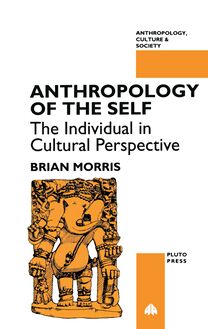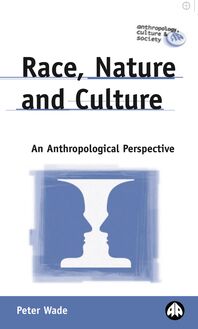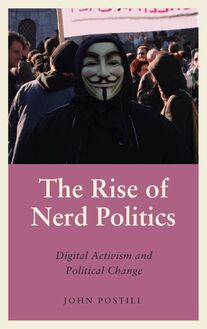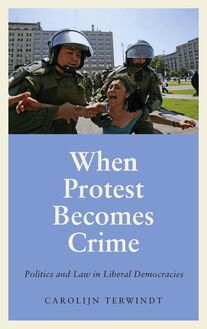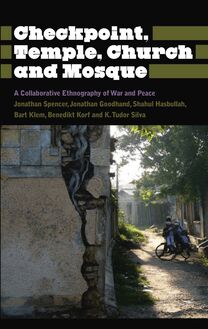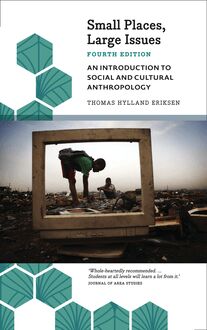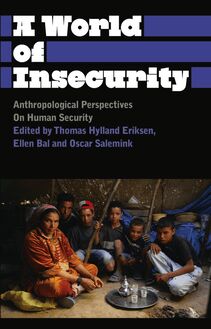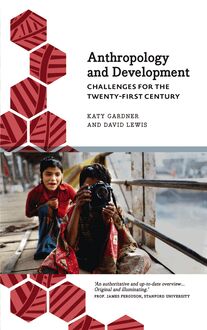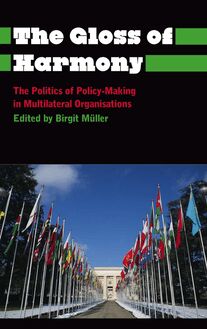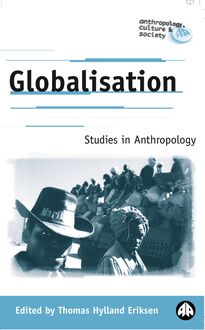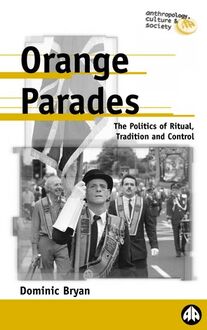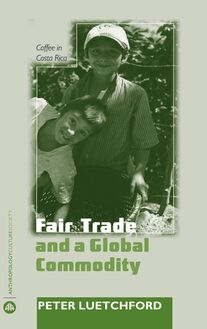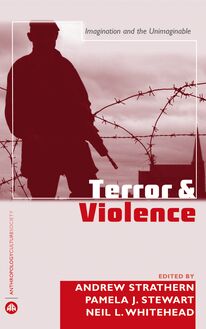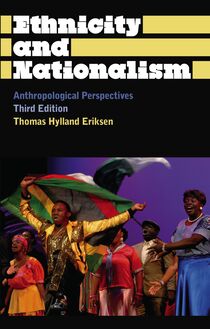-
 Univers
Univers
-
 Ebooks
Ebooks
-
 Livres audio
Livres audio
-
 Presse
Presse
-
 Podcasts
Podcasts
-
 BD
BD
-
 Documents
Documents
-
- Cours
- Révisions
- Ressources pédagogiques
- Sciences de l’éducation
- Manuels scolaires
- Langues
- Travaux de classe
- Annales de BEP
- Etudes supérieures
- Maternelle et primaire
- Fiches de lecture
- Orientation scolaire
- Méthodologie
- Corrigés de devoir
- Annales d’examens et concours
- Annales du bac
- Annales du brevet
- Rapports de stage
La lecture à portée de main
177 pages
English
Découvre YouScribe en t'inscrivant gratuitement
Je m'inscrisDécouvre YouScribe en t'inscrivant gratuitement
Je m'inscris
Obtenez un accès à la bibliothèque pour le consulter en ligne
En savoir plus
En savoir plus
177 pages
English
Obtenez un accès à la bibliothèque pour le consulter en ligne
En savoir plus
En savoir plus

Description
This innovative book explores the way Western anthropologists use studies of ethnicity to 'interpret' local cultures. Mary Rack raises critical issues about ethnic classifications and the way they are used, making this a book that will be useful for all students of ethnicity.
Overturning the generalising tendencies characteristic of classic anthropology, Rack demonstrates that ethnic classifications have little to do with the self-perceptions of those concerned - and everything to do with political and intellectual elites.
Focusing on a rural area of south China, Rack shows how so-called ethnic minority cultural events have become occasions for the exploration of personal identity by urban elites. She suggests that, historically, ethnic classifications were drawn up as a result of elite concern to demonstrate the existence of a contrasting homogeneous and superior civilisation. This study sheds new light on the ways in which Western anthropologists handle ethnicity and ethnic difference more generally.
Acknowledgements
1. Where are the Miao?
2. Miao Rebels and ‘Common Ground’
3. Multiple Meanings of the Miao
4. The Rituals of New Year
5. Authority and the Local
6. Conflict at the Temple of the Celestial Kings
7. Conclusions
Bibliography
Overturning the generalising tendencies characteristic of classic anthropology, Rack demonstrates that ethnic classifications have little to do with the self-perceptions of those concerned - and everything to do with political and intellectual elites.
Focusing on a rural area of south China, Rack shows how so-called ethnic minority cultural events have become occasions for the exploration of personal identity by urban elites. She suggests that, historically, ethnic classifications were drawn up as a result of elite concern to demonstrate the existence of a contrasting homogeneous and superior civilisation. This study sheds new light on the ways in which Western anthropologists handle ethnicity and ethnic difference more generally.
Acknowledgements
1. Where are the Miao?
2. Miao Rebels and ‘Common Ground’
3. Multiple Meanings of the Miao
4. The Rituals of New Year
5. Authority and the Local
6. Conflict at the Temple of the Celestial Kings
7. Conclusions
Bibliography
Sujets
Informations
| Publié par | Pluto Press |
| Date de parution | 20 mars 2005 |
| Nombre de lectures | 0 |
| EAN13 | 9781849644969 |
| Langue | English |
Informations légales : prix de location à la page 0,6250€. Cette information est donnée uniquement à titre indicatif conformément à la législation en vigueur.
Extrait
Ethnic Distinctions, Local Meanings
Anthropology, Culture and Society
Series Editors: Professor Thomas Hylland Eriksen, University of Oslo Dr Jon P. Mitchell, University of Sussex
Land, Law and Environment: Mythical Land, Legal Boundaries Edited by ALLENABRAMSONANDDIMITRIOSTHEODOSSOPOULOS
The Trouble with Community: Anthropological Reections on Movement, Identity and Collectivity VEREDAMITANDNIGELRAPPORT Anthropology and the Will to Meaning: A Postcolonial Critique VASSOSARGYROU Risk Revisited Edited by PATCAPLAN Macedonia: The Politics of Identity and Difference Edited by JANEK. COWAN Ethnicity and Nationalism: Anthropological Perspectives THOMASHYLLANDERIKSEN
Globalisation: Studies in Anthropology THOMASHYLLANDERIKSEN
A History of Anthropology THOMASHYLLANDERIKSENANDFINNSIVERTNIELSEN
Small Places, Large Issues: An Introduction to Social and Cultural Anthropology THOMASHYLLANDERIKSEN
WhatisAnthropology? THOMASHYLLANDERIKSEN
Anthropology, Development and the Post-modern Challenge KATYGARDNERANDDAVIDLEWIS
Power and its Disguises: Anthropological Perspectives on Power JOHNGLEDHILL
Control and Subversion: Gender Relations in Tajikistan COLETTEHARRIS
Youth and the State in Hungary: Capitalism, Communism and Class LÁSZLÓKÜRTI
Locating Cultural Creativity Edited by JOHNLIEP
Cord of Blood: Possession and the Making of Voodoo NADIALOVELL
Cultivating Development: An Ethnography of Aid Policy and Practice DAVIDMOSSE
Ethnography and Prostitution in Peru LORRAINENENCEL
Witchcraft, Power and Politics: Exploring the Occult in the South African Lowveld ISAKA. NIEHAUSwith ELIAZAARMOHLALAANDKALLYSHOKANE
Power Community and the State: The Political Anthropology of Organisation in Mexico MONIQUENUIJTEN
Social Mobility in Kerala: Modernity and Identity in Conflict FILIPPOOSELLAANDCAROLINEOSELLA
Negotiating Local Knowledge: Power and Identity in Development Edited by JOHANPOTTIER, ALANBICKERANDPAULSILLITOE
Class, Nation and Identity: The Anthropology of Political Movements JEFFPRATT
Ethnic Distinctions. Local Meanings: Negotiating Cultural Identities in China MARYRACK
The Cultural Politics of Markets: Economic Liberalization and Social Change in Nepal KATHERINENEILSONRANKIN
Bearing Witness: Women and the Truth and Reconciliation Commission in South Africa FIONAC. ROSS
Landscape Memory and History: Anthropological Perspectives Edited by PAMELAJ. STEWART ANDANDREWSTRATHERN
Race, Nation and Culture: An Anthropological Perspective PETERWADE
Ethnic Distinctions, Local Meanings
Negotiating Cultural Identities in China
Mary Rack
P Pluto Press LONDON • ANN ARBOR, MI
First published 2005 by Pluto Press 345 Archway Road, London N6 5AA and 839 Greene Street, Ann Arbor MI 48106, USA
www.plutobooks.com
Copyright © Mary Rack 2005
The right of Mary Rack to be identified as the author of this work has been asserted by her in accordance with the Copyright, Designs and Patents Act 1988.
British Library Cataloguing in Publication Data A catalogue record for this book is available from the British Library
ISBN 0 7453 1939 4 hardback ISBN 0 7453 1938 6 paperback
Library of Congress Cataloging in Publication Data
10
9
8
7
6
5
4
3
2
1
Designed and produced for Pluto Press by Chase Publishing Services, Fortescue, Sidmouth EX10 9QG Typeset from disk by Stanford DTP Services, Northampton Printed and bound in the European Union by Antony Rowe, Chippenham and Eastbourne, England
Contents
Acknowledgements
1. 2. 3. 4. 5. 6. 7.
Where are the Miao? Miao Rebels and ‘Common Ground’ Multiple Meanings of the Miao The Rituals of New Year Authority and the Local Conflict at the Temple of the Celestial Kings Conclusions
NotesBibliographyIndex
vi
1 21 45 67 83 106 128
134 143 157
Acknowledgements
My first debt of thanks is to all those people in West Hunan who shared their experiences with me and explained so much to me. During its earlier form, as a postdoctoral thesis, this research benefited greatly from the help of my supervisors Nick Tapp and Charles Jedrej, and from the help of staff and postgraduate students at the Department of Social Anthropology, Edinburgh University. I thank Stephan Feuchtwang and Jon Mitchell for guiding me towards writing the book in its current form, Harriet Evans for her input into the planning for it and Ronnie Frankenberg for his thoughtful and thorough contributions to its final stages. I would like to thank theSociological Reviewat Keele University for granting me the fellowship that made it possible for me to embark on writing this book. The postdoctoral thesis on which the work is based was supported by a studentship from the ESRC. I would also like to thank participants in the conference Ethnicity, Politics, and Crossborder Cultures in Southwest China: Past and Present (Lund University, 25–28 May 2000) for their comments on a paper which now forms part of Chapter 2. Finally, thanks to my family for their patience with the whole long process.
vi
1
Where are the Miao?
The new temple of the Celestial Kings was to be inaugurated that night at a small rocky outcrop on the edge of Yaxi. The traffic on the roads was quiet by now and the rice fields round about were noisy with frogs. The village was dark, though a few lights could still been seen among the lowrise buildings of the city of Jishou a couple of kilometres away. Beyond were the dark shapes of steep hills. Near the foot of the outcrop was another temple to the Celestial Kings. Illuminated by the lights of a rice spirits factory that had claimed use of the spring in which the Celestial Kings were said to have been 1 born, it stood deserted. This temple had recently fallen into disfavour since its organisation had been taken over by a local government department. It was generally believed, for this reason, that the deities were no longer willing to reside there. All day people had come on foot and by minibus to visit the rocky hill. With help from village women who had set themselves up as custodians, they burned incense in front of the rocks that were now believed to represent the three Celestial Kings and their mother. Then they made their requests of the deities. Many of these requests could have belonged to any era. People asked for health, a good marriage, children, grandchildren or success in their exams. Other requests were more situated in that particular place and time, the mid1990s in a small city in China’s interior. They asked when was the best time to go in search of temporary work elsewhere, or to buy up stocks of manufactured goods and fruit to sell in the city. They also turned to the deities, rather than to the police and local government, for help with a perceived breakdown in social order. This temple, situated in the West Hunan Miao and Tujia Minority Autonomous Prefecture, was recorded as an example of Miao minority culture. No one whom I spoke to, however, regarded it in this way. Differences in ancestry among the worshippers could be guessed at from dress and language. Women from highland villages, Kho Xiongspeaking descendants of the indigenous people often classified as ‘Miao’, wore indigo tunics and widelegged trousers decorated around the cuffs with embroidered strips of flowers and butterflies. On their heads were long pieces of lightercoloured cloth wound into turbans. These clothes contrasted with the colourful Western
1
2 Ethnic Distinctions, Local Meanings
style clothes of visitors from Jishou City and the more sober blue tunics of the lowland, Chinesespeaking rural people including those from the village of Yaxi itself. These apparent differences were not a source of conflict or disagreement however. All agreed that the deities refused to live in the official temple. If asked, almost everyone at the temple would describe the deities as protective local figures, neither specifically Miao or Chinese. Although the event had been arranged by lowland, Chinesespeaking Yaxi women, and lowland villagers made up the majority of those attending, many of the ritual practitioners were highlanders. A number of women in highland dress were among the spirit mediums who attended the temple, speaking sometimes in the voices of dead relatives, sometimes in the voices of the Celestial Kings themselves. Later in the evening a ceremony was performed by a group of male ritual practitioners who were dressed in the bright orange robes and ornate headdresses that are associated with the highland Kho Xiongspeaking Daoist practitioners, thelaoshi. The inauguration of the new temple of the Celestial Kings was one of a number of fieldwork experiences which challenged preconceived ideas I had of a separate Miao culture. As a result, this book is a study not of Miao or Tujia identity or culture but of a sense of belonging to a border place, one which often goes unmarked in written accounts. I approach this by focusing on cultural events and practices, in which people of apparently very different backgrounds participated. I juxtapose these against the preoccupation with minority identity and minority difference that is so prominent in interpretations of West Hunan by the local elite and by people from elsewhere. Indeed, I argue that this disparity reflects an unfortunate preoccupation in the discourse of social science more generally. By doing so I hope to question the continuing emphasis anthropology continues to place on a concept of cultural groups. When I arranged to do fieldwork in and around the small city of Jishou, capital of West Hunan prefecture I had every intention of studying the Miao. I decided to go to this area because, on a previous stay in China, the Miao, with their distinctive costume and highland way of life, had seemed to present such an intriguing contrast to my life in a large Chinese city. But my fieldwork quickly led me to question the usefulness of this category, however subtly explored, as a basis for ethnographic description. It is perhaps possible that I would have continued to follow up a romantic quest for the highland Miao had restrictions placed on foreigners doing fieldwork in West Hunan
Where are the Miao? 3
in the 1990s not prevented me from applying for permission to work in rural areas. Instead I took a job in Jishou University and undertook a study based largely on the city and the surrounding lowland areas. This seemed to offer little in the way of exotic culture. Apart from a few streets of old wooden houses by the river, the city at this time consisted of a large number of administrative and educational work units alongside a mixture of concrete department stores, hotels and glassfronted banks, crowded into a narrow valley. Work units, built in the Socialist era, were selfcontained, enclosed compounds which, as well as being a place of work, met accommodation and other needs. With the economic liberalisation that followed the ascent to power of Deng Xiaoping, small entrepreneurial businesses were also much in evidence in that the streets were lined with small restaurants,karaokebars and shops. As in the rest of China, these last were filled with Chinese and imported electrical and electronic goods, multinational and joint venture household products, convenience foods and highprestige imported goods such as European whisky and brandy. Western fashions were also popular, and a row of street stalls known as ‘Hong Kong Street’ sold cheap versions of recent Western styles in jeans and other clothes. I was told frequently that I would have to visit the highland areas if I wanted to find something interesting for my research. This, at first, made me feel frustrated because the conditions of my research permission did not allow me to. During the course of my fieldwork I encountered, among some, a fascination with the Miao, among others, an almost complete disregard for incomer/indigenous differences. Young educated people such as students, most of whom were from elsewhere, were fascinated by images of the Miao and the contrast they presented to city life. As an outsider myself, it was completely appropriate that I too should 2 consume these images. The fascination with which many outsiders regarded the Miao was reinforced by local government agendas, which were themselves part of the wider politics of the nation. For example, Jishou, long regarded as a remote and mysterious region, is today connected to the rest of China by a railway line. When you approached the city, a recorded announcement tells you that, as well as being a government, education and business centre, the city is also a tourist destination. The main attractions, the announcement stressed, are the local Miao and Tujia minority peoples. There are several Miao festivals each year, the people speak a local version of the Miao language and there is a museum housing Miao and Tujia artefacts. At first these claims appeared improbable. In contrast to
-
 Univers
Univers
-
 Ebooks
Ebooks
-
 Livres audio
Livres audio
-
 Presse
Presse
-
 Podcasts
Podcasts
-
 BD
BD
-
 Documents
Documents
-
Jeunesse
-
Littérature
-
Ressources professionnelles
-
Santé et bien-être
-
Savoirs
-
Education
-
Loisirs et hobbies
-
Art, musique et cinéma
-
Actualité et débat de société
-
Jeunesse
-
Littérature
-
Ressources professionnelles
-
Santé et bien-être
-
Savoirs
-
Education
-
Loisirs et hobbies
-
Art, musique et cinéma
-
Actualité et débat de société
-
Actualités
-
Lifestyle
-
Presse jeunesse
-
Presse professionnelle
-
Pratique
-
Presse sportive
-
Presse internationale
-
Culture & Médias
-
Action et Aventures
-
Science-fiction et Fantasy
-
Société
-
Jeunesse
-
Littérature
-
Ressources professionnelles
-
Santé et bien-être
-
Savoirs
-
Education
-
Loisirs et hobbies
-
Art, musique et cinéma
-
Actualité et débat de société
- Cours
- Révisions
- Ressources pédagogiques
- Sciences de l’éducation
- Manuels scolaires
- Langues
- Travaux de classe
- Annales de BEP
- Etudes supérieures
- Maternelle et primaire
- Fiches de lecture
- Orientation scolaire
- Méthodologie
- Corrigés de devoir
- Annales d’examens et concours
- Annales du bac
- Annales du brevet
- Rapports de stage
Signaler un problème
YouScribe
Le catalogue
Le service
© 2010-2024 YouScribe
